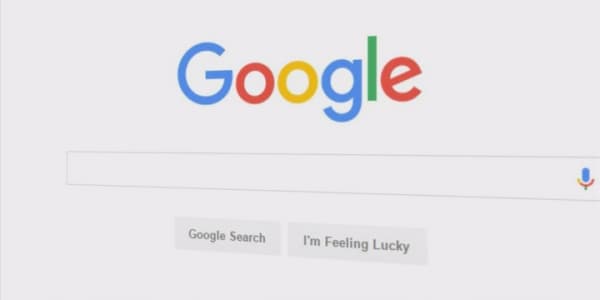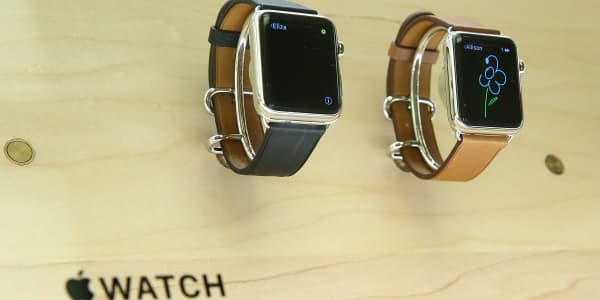Stressed? Feeling down? You may not associate social media with meaningful conversations to boost your mood. But, believe it or not, there's an app for that.
Netizens have been experimenting for years with different forms of messaging, online support groups and mood logging apps — where one records their feelings in a mindful way. But now entrepreneurs are taking it one step further, seeing if apps based on therapeutic techniques, combined with existing social media, get people to consistently share their feelings in a way that can augment therapy.
"There are a lot of mood-management techniques that if people were taught could make an impact across the world," said Robert Morris, creator of social mental health apps like Koko and Panoply. "You're not really exposed to therapeutic techniques until you have a pretty serious problem in our society. Apps can be used as a stepping stone to give people more rigorous techniques rather than just chatting with friends."
Take new iOS app YouHue, for example. YouHue is a 21st-century take on mood rings where you send vivid emojis that act out a specific feeling to Facebook friends, and request one in return. It's one of many apps that takes the age-old practice of mood logging, and introduces social media into the mix.
YouHue's interface is designed to be quick, lightweight and fun, not deep and probing. But said entrepreneur Kristi Kelly, who, with colleague Ammar Khan, worked with the New York University department of psychology on the app, the colorful design is a way of "hiding the vegetables in the meal."
"As we were doing research in psychology and neuroscience, we want to enable people to become more mindful of their emotions," Kelly said. "I am able to reflect on how I'm feeling and why. That can be actionable."
Emojis, like those used by YouHue, are increasingly a part of the social media experience — now appearing in everything from dictionaries to workplace emails to presidential campaigns.
More than 90 percent of Internet users use emojis on occasion, according to an August study by social media sentiment research firm Emogi. Emojis more accurately express their thoughts, make it easier for others to understand them, create better personal connections and are a better fit than words in many instances, the 510 respondents told Emogi.
For instance, 67 percent of teens said they would be likely to use an emoji to express compassion or support for friends being cyberbullied, respondents said in an October study by Vodafone.
Sharing emotions in a structured way via social media, even with emojis, is on the cutting edge of research, Morris said.
Johns Hopkins University, for instance, tried a text-based mood logging app, Mood24/7, while inventor Allison Nelson's Hack My Mood program analyzes existing tweets to help users track their mood over time. Apps are emerging for cancer support groups, rehab programs and practicing cognitive behavioral therapy.
Morris, who has done research at the MIT Media Lab and Columbia University, said the social aspect of sharing ones' feelings with others intrinsically motivates people to log their moods more frequently, a behavior proven by brain scans to boost moods. Indeed, one study found when faced with a choice between a sum of money and sharing a personal thought, participants would forgo the money.
"If you go through all these self-help exercises, they have been clinically validated to reduce depression symptoms," Morris said. "You can see benefits. The big frontier is how to get people to do that stuff, get them to use the apps repeatedly. That's where being really creative and adventuresome is important and is where we need to go."
Jason Rentfrow, a personality psychologist, said as phones and wearables become a more sensitive source of information on users daily routines, there's potential for interventions that promote positive behaviors that people want to engage in.
"We have come to the realization, as have many people, that smartphones provide a powerful platform for interesting information," Rentfrow said. "How active people are, locations they frequent, how social they are. Because most people carry their phones all the time, and we can ask questions about feelings and attitudes link up with that sensor data."
People do not typically associate technology with rich emotional cues. But maybe that's not a bad thing, Jeff Hancock, a social media expert at Stanford University, said. Psychologists back to Sigmund Freud have extolled the benefits of providing different mediums with which people can "interact with their fears," either intimately or anonymously, Hancock said. The mobile phone screen is the latest frontier — and one that many experts said has promise.
"What I foresee and what has already taken place, is that clinicians can use these mediums to stay in touch with patients," Hancock said. He said he knows a therapist who communicates with her college-aged patients via text message. "On text, they can be anybody they want in their imagination," Hancock said.
To be sure, psychology experts are divided on the benefits of social media for mental health even with the multitude of online messaging services already available, creating a challenging environment for newcomers like YouHue.
Certain types of people can feel depressed after spending large amounts of time on social media, because they are comparing themselves to others, research in the Journal of Social and Clinical Psychology said last year.
But use of email, Twitter, photo sharing and other forms of social media led to lower stress in women studied by Pew Research Center earlier this year. And Hancock found that updating one's own Facebook profile improved users' self-esteem. In one study, patients who texted with a stranger during surgery, rather than playing a game or other distraction, needed significantly less pain medication, Hancock said.
"In the process of writing, you have to contextualize your feeling and think about it in a distanced way," Morris said. "You wouldn't get that with three frowning faces and a crying face. I have no idea if people express more if they have access to a lightweight way of tapping something."
Morris said therapeutic exercises on Koko tend to be structured and detailed — unlike the empty text box provided in YouHue. But the fact that the app prompts a response from the recipient could be beneficial, he said.
"You can be a helper, and that is the most therapeutic aspect," Morris said. "It creates automatic behavior, where you are more resilient."
But Hancock said that while emojis may not be deeply moving on an emotional level, they, like physical smiles, can be used to communicate symbolically with others.
"I don't think there's a way that they are stunting," Hancock said. "They carry meaning beyond happy, sad, upset, depressed. I think they are really amazing, they are a hilarious a new way of expressing yourself, but not your emotions necessarily."
They're certainly not, Hancock said, a replacement for face-to-face contact or clinical help. YouHue, for instance, is more interested in the education space than the clinical one.
But with the right level of caution, Rentfrow said, a consistent log of your mood and behavior that can be shared with those around you could lead to self-reflection.
"I wouldn't have made any significant life decisions based on the data," Rentfrow said. "The information you get from the app will only be as reliable as the information you give it. But being more mindful in and of itself might enhance quality of life."










